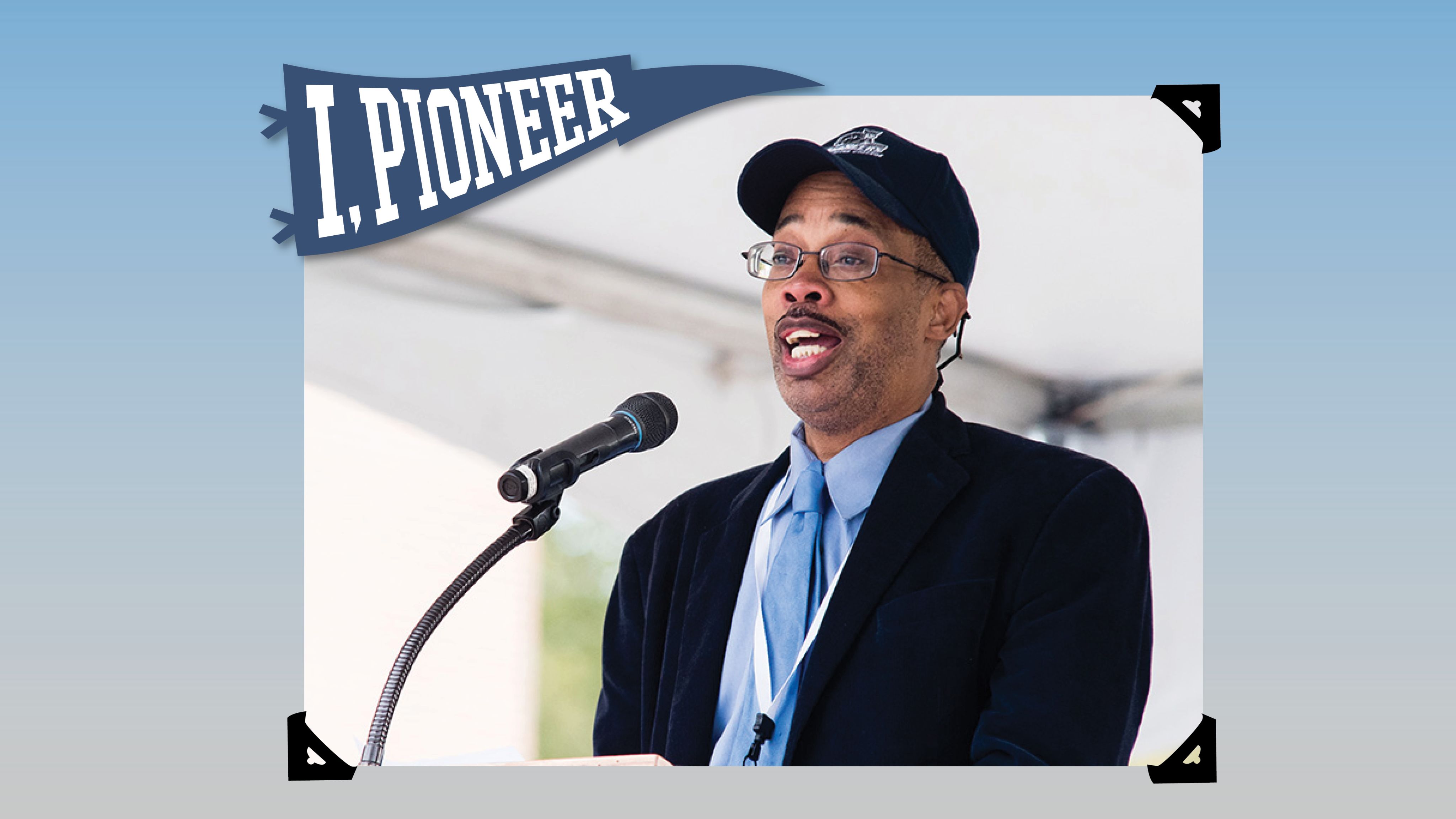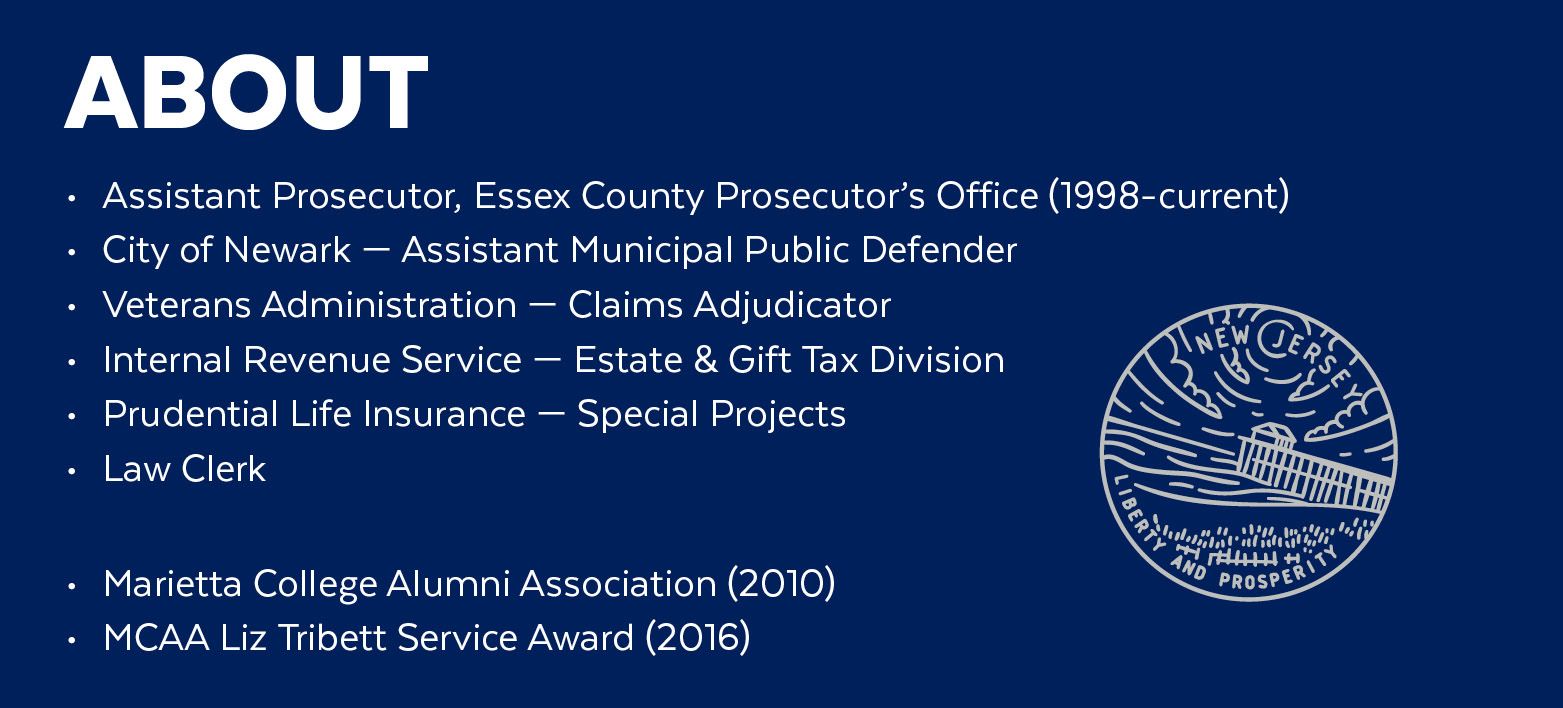I, Pioneer
Reginald Sims ’75
Livingston, New Jersey

When Reggie Sims ’75 was a child, a book inspired him to pursue public service.
“President Kennedy was our president and the country was doing a lot of interesting things,” Sims says. “That’s what I wanted to be a part of.”
Initially focused on studying history, during his sophomore year at Marietta, a lecture from Professor Jim O’Donnell inspired him to pursue law.
“It was that 60- to 90-minute lecture by James O’Donnell that got me on the path of becoming a lawyer. It was one of those moments on one of those particular days that a lecture could change your life.”
Sims graduated a semester early and went on to attend the Maurice A. Deane School of Law at Hofstra University. Though his first job after becoming an attorney was in the private sector, Sims quickly transitioned to his intended field of public service. His first job was with the Internal Revenue Service to work in the Estate & Tax Division. He also worked for the Veterans Affairs Department, helping to determine what disability, pension, or education benefits would be given to veterans applying for them.

His first experience in the courtroom was working for a judge as a law clerk. He then worked as an Assistant Municipal Public Defender for the city of Newark, New Jersey.
“I was told that if I could there, I could work anywhere,” Reggie says.
Within a few years, he moved to the Prosecuting Attorney’s Office in Essex County, where he is still working full time. Though he enjoys talking about his professional work, Reggie is quick to move the conversation to his alma mater.
He first learned of Marietta from his guidance counselor, who was friends with Marietta’s Admission Director, Ross Lenhart ’66, who interviewed Reggie at the Waldorf Astoria. What caught his eye about Marietta was, during his tour of campus, he saw an established Black Student Union.
“Being the first Black male to graduate from Livingston High School, there were certain things I sacrificed,” Sims says. “I was born in Newark, New Jersey, and my early years were spent in East Orange. I was taught that race didn’t or was not supposed to matter. So upon entering Livingston Township in 1967 at 14, I was naïve and oblivious to race. Oh, to be sure that I knew about the Civil Rights movement etc., but 'black is beautiful' and a racial consciousness did not happen in high school.
“…it was ironically to happen at Marietta College, for I entered as a naïve freshman and left a Black man. That was not planned by the college or myself, it just happened.”
Reggie returned to Marietta for his 10th reunion, after having written a piece for The New York Times, entitled A Black in Suburbia: The First Years are the Hardest. He met up with two former students who were also a part of the Black Student Union. They looked for a plaque that listed Black Marietta College graduates from 1969 to the mid-1980s. The plaque used to be hung on the old Black Student Union but had since been lost. Reggie played an integral part in the College creating a new plaque.
Getting the new plaque on the library wall was not easy. Once it was made and shown at Homecoming, it was really slow being put up, Reggie recalls. He sent a note to the College asking why the plaque wasn’t up and if he needed to return to campus to put it up himself. The note also came with a gift-wrapped box that contained a hammer. Soon after, he learned the plaque was finally erected. Reggie says it wasn't a racial issue, and considered it was more about alumni relations. He was committed to giving attention to alumni who felt voiceless. "I do mean well," he says.
In the early 2000s, Reggie made an unsuccessful campaign to join the Board of Trustees. A fellow alum pointed him in the direction of the Marietta College Alumni Association, which he said better fit his goals. Prior to joining the MCAA, Reggie was a vocal proponent to hire more minorities and women at the College to attract more minorities and women as students. Diversity, assisting at-risk students, and alumni relations were his focus.
“It’s not only about hiring more minorities, it’s also about creating a system where they want to stay. I don’t think it’s necessarily bad to be a stepping stone, but you also have to have an environment where people are encouraged to stay.”
In 2016 — six years after Reggie completed his work on the MCAA, he learned he was being awarded the Liz Tribett Service Award during Homecoming. In his speech, he recognized the staff at the College for their work to make Marietta great.
Though he can recall just about every name and every moment at Marietta that had an impact on him, Reggie points to one of the more recent adventures that brought him pride.
Decades after graduating, Reggie was asked to address campus on Martin Luther King Jr. Day. That day, he was also asked to mentor Jeffrey Sherman, a Black student.
“Mr. Sherman and I hit it off. And I agreed to assist and give what guidance a mentor had to give. As I was leaving campus, I knew that he was having a meeting with Provost Sue DeWine. At this time, he was attempting to establish a cultural organization. And in a business-like atmosphere, (Provost) DeWine made sure there were bylaws and a constitution. And then the issue: ‘What are you going to name it?’ I haven’t seen such deer in the headlights looks since Bambi and his mother were trying to leave the forest,” Reggie joked. “Anyway … So off the top of my head, I mentioned ‘Well, the first black to graduate was Charles Sumner Harrison. Why not call it the Charles Sumner Harrison Society?”
AND THE REST IS HISTORY.
